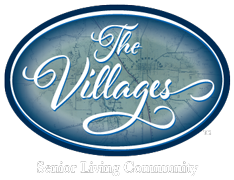Key Takeaways
- Dementia progresses through seven distinct stages, from no symptoms to full dependency.
- Early stages may include subtle memory lapses that are easy to overlook.
- Middle stages often bring challenges with daily tasks and personality changes.
- Advanced stages require full-time care and focus on comfort and safety.
- Memory care communities offer structured environments for support in later stages.
Dementia: What Are the Stages?
When your loved one receives a dementia diagnosis, it’s time to plan ahead. Dementia is complicated, and the right type of care matters. And finding a loved one the care they deserve begins with learning the key stages of dementia.
Dementia works through several stages: early, moderate, and late. In the earlier stages, symptoms rarely appear. However, dementia is progressive, and it changes over time. Eventually, a person with dementia will need professional memory care to preserve their quality of life.
What Are the 7 Stages of Dementia?
The Global Deterioration Scale breaks down dementia progression into 7 distinct stages. This framework was developed to help healthcare professionals and families better understand cognitive changes over time. The scale ranges from no cognitive decline in stage 1 to severe cognitive decline in stage 7.
The 7-stage framework provides helpful guidance, but it’s important that you remember that dementia is extremely complex. Some individuals may skip stages entirely, while others remain in one stage for extended periods. Your loved one’s unique personality, lifestyle, and health play a large role in how their condition progresses.
Early Stages: No Symptoms to Mild Changes
In the earliest stages, a person’s condition has not yet damaged much of the brain. So, symptoms tend to be rare and extremely subtle if they do appear.
Stage 1: No Noticeable Changes
At this point, your loved one functions normally and shows no visible signs of memory impairment. Although subtle brain changes may begin, they aren’t noticeable in daily life. Independence and routines remain fully intact.
Stage 2: Very Minor Memory Lapses
Stage 2 brings very mild memory lapses that many people attribute to normal aging. Your loved one might occasionally forget familiar names or misplace everyday items like keys.
These changes are typically so subtle that even close family members don’t notice them. Your loved one remains fully capable of independent living and managing their affairs.
Stage 3: When Family Members Start to Notice
Stage 3 marks the point where family and friends begin to observe changes in memory and thinking. Your loved one might repeat questions, have trouble finding words, or struggle with planning tasks.
If they still work, their performance may decline, and they might get lost in familiar places occasionally. However, they can still live independently with minimal support.
Middle Stages: When Daily Life Becomes Challenging
In the middle stages, dementia progresses further. It begins damaging sections throughout the brain and creating unique new symptoms. These usually affect memory, but they can also sometimes create behavioral shifts.
Stage 4: Clear Memory Loss and Daily Task Difficulties
Stage 4 brings more obvious memory loss and difficulty managing complex daily tasks. Your loved one might struggle with managing finances, cooking meals, keeping track of current events, and other daily tasks. While they can still handle basic self-care, a person would benefit from additional support and supervision.
Stage 5: Personality Changes and Mood Swings
Stage 5 typically signals the need for more intensive supervision and support. Your loved one may have significant gaps in memory, and soon, this affects their daily life. They may begin experiencing suspicion, anxiety, agitation, or frustration.
Creating calm, predictable environments helps manage these changes. That’s why many families begin looking into memory care around this time. With the right environment, they can effectively manage their condition and preserve their quality of life.

Advanced Stages: Increased Care Needs
In the later stages of dementia, symptoms begin affecting everyday quality of life. Dementia can lead to problems like wandering and the inability to recognize daily hazards. Without the right care, your loved one could be at risk of harm.
Stage 6: Severe Memory Loss and Recognition Problems
Your loved one may have difficulty recognizing close family members or remembering recent experiences. Your loved one may need support with dressing, bathing, and eating. A key problem here is sleep disruption, which can worsen cognitive decline.
At this point, specialized care that focuses on comfort, dignity, and maintaining connection makes a significant difference. The right memory care community can help your loved one with targeted activities designed to preserve cognitive abilities.
Stage 7: Complete Dependency and Physical Changes
In the final stage, communication becomes limited, and physical abilities decline. Your loved one will need complete assistance with daily care. During this stage, comfort care becomes the primary focus. Specialized memory care communities provide compassionate support that honors your loved one’s dignity while meeting their complex needs.
Planning Ahead for Your Family’s Future
Every family’s experience with dementia is personal and deeply emotional. Learning these signs is a great first step, but the next steps are just as important. Your loved one deserves a place that truly understands the complexity of dementia—a place like ours at The Villages of Murfreesboro.
Here, we’re here to provide the personalized support your loved one deserves. Our memory care community creates a warm, secure environment where residents can maintain their dignity while receiving specialized care. Your family isn’t alone, and we’re here to give your loved one the support they deserve. Book a tour with us today to learn more!



